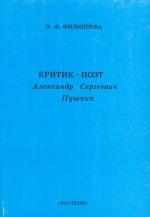|
This section contains 9,236 words (approx. 31 pages at 300 words per page) |

|
SOURCE: "Pushkin's Tales," in Partisan Review, Vol. LIX, No. 2, Spring, 1992, pp. 197-215.
In the following essay, Bayley places Pushkin's tales within a biographical context and explains the difficulty Westerners often have in detecting the originality of his works.
Pushkin is not only Russia's primary and archetypal author but her most astonishingly versatile one. He was himself fascinated by Mozart, whose music he deeply admired, and there is something Mozartian about his genius, which is in the same manner with variety, gaiety and depth. In one of his "Little Tragedies"—brief "dramas of investigation" as he called them—he contrasted the temperament of Mozart with that of the talented and industrious but uninspired composer Salieri, and implied that genius often prefers to reside in a wholly simple, open and unpretending personality. Keats said of Shakespeare—and he may have been thinking of himself as well—that instead of a...
|
This section contains 9,236 words (approx. 31 pages at 300 words per page) |

|


